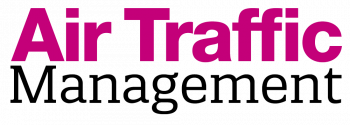ENAIRE, as part of the GO-DRON unmanned aviation operating group, analysed the status of the changes to airspaces, restricted areas, environmentally protected areas, etc., to facilitate the development of the drone sector, as well as the U-Space projects in which it participates, and it announced that an estimated 10,000 transactions will be processed by the close of 2022, which would represent a 64% increase over 2021. 96% of flight operation requests are processed approximately 7 days in advance.
The task group led by ENAIRE, known as GO-DRON, has added two new members with the incorporation of the Federación Española de Deportes Aéreos and the DRONIBERIA association.
Aerial work, with its relevant aeronautical safety study (EAS) and operational risk assessment and mitigation study (EARO), is processed through the planea.enaire.es website, where this type of work is initially coordinated. These reports are necessary for all operators registered with AESA, and they analyse the risks for the type of flight that an operator plans to carry out in controlled airspace.
ENAIRE also offers the map drones.enaire.es (also available as an Android app) to help pilots and operators of remotely piloted aircraft systems (RPAS) by providing them with the aeronautical information they need to plan their operations safely. This information is based on the current ENAIRE AIP ESPAÑA publication and can be used to consult alerts, notifications and NOTAMs that may affect their flight.
Operational challenges with drones
The meeting reviewed the progress achieved in cooperation with the Air Force General Staff, the Secretariat of State for Security, the Civil Aviation General Directorate and AESA, which make these operations and the growth of the sector possible. The Secretariat of State for Security has worked with AESA on a guide for law enforcement agencies to standardise procedures in every region of Spain and make it easier to oversee professional and recreational operations.
The GO-DRON group is an ENAIRE initiative to address the sector's current and future challenges in response to the growth in drone operations. The work group consists of the airline associations AECA and ALA, SEPLA, the Galician Emergency Management Agency, the Spanish Firefighting Association (ASELF), the defence association TEDAE, the Civil Aviation General Directorate, Aena, AESA, the Air Force Staff, the Department of Customs and Special Taxes of the Revenue Agency, the Secretariat of State for Security, representing law enforcement, the Aerial Support Section of the Madrid Municipal Police and the Universidad Politécnica de Valencia.
U-Space projects and news
ENAIRE took the opportunity to discuss developments involving U-Space, the system that will regulate how drones are integrated into conventional air traffic. Last June, the Ministry of Transport, Mobility and Urban Agenda (Mitma) published the U-Space National Deployment Plan in Spain (PANDU), available on the Mitma website, the challenge of which is to coordinate the deployment of this system between public bodies with different functions and responsibilities.
ENAIRE recently participated in the demonstrations in Santiago de Compostela and the Rozas aerodrome in Lugo of the AMU-LED project, financed by the European Horizon 2020 programme and led by NTT Data, which relied on the GammaSim control simulation tool and air traffic controllers at the Santiago Airport to test the integration of an emergency helicopter and five drone operators in controlled airspace in various scenarios.
Next week, ENAIRE will take part in Uspace4UAM led by Honeywell, with demonstrations in four countries, with the Spanish one in Villacarrillo, Jaén. It is also supported by European research funds from Horizon 2020. And, in November, it will be the turn of U-ELCOME, led by EUROCONTROL, with a budget of 14 million euros and an execution timeline through October 2025, where ENAIRE will act as the national coordinator, with eight locations in Spain, five in Italy and four in France.
